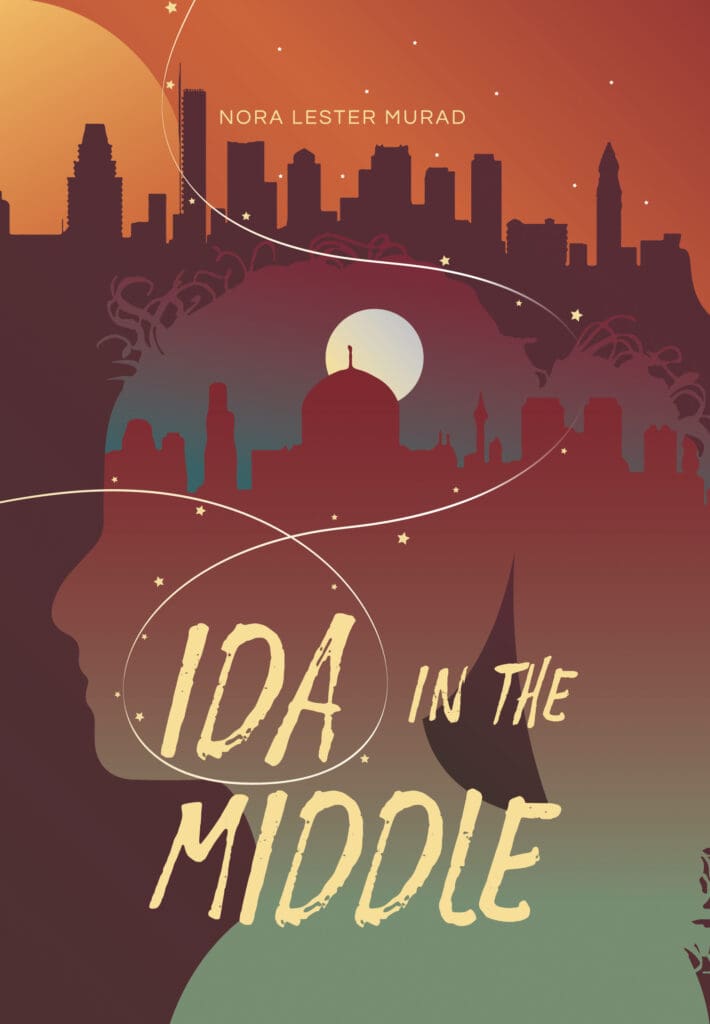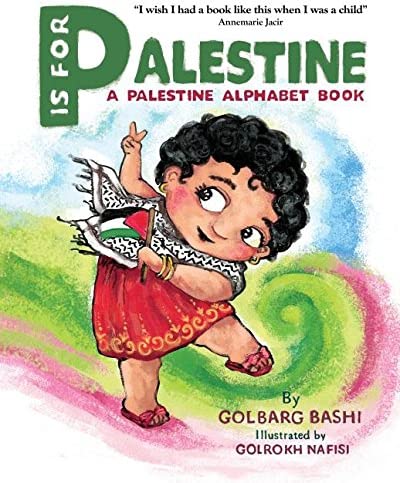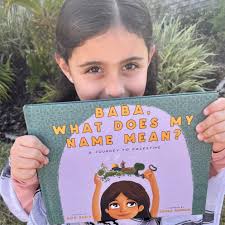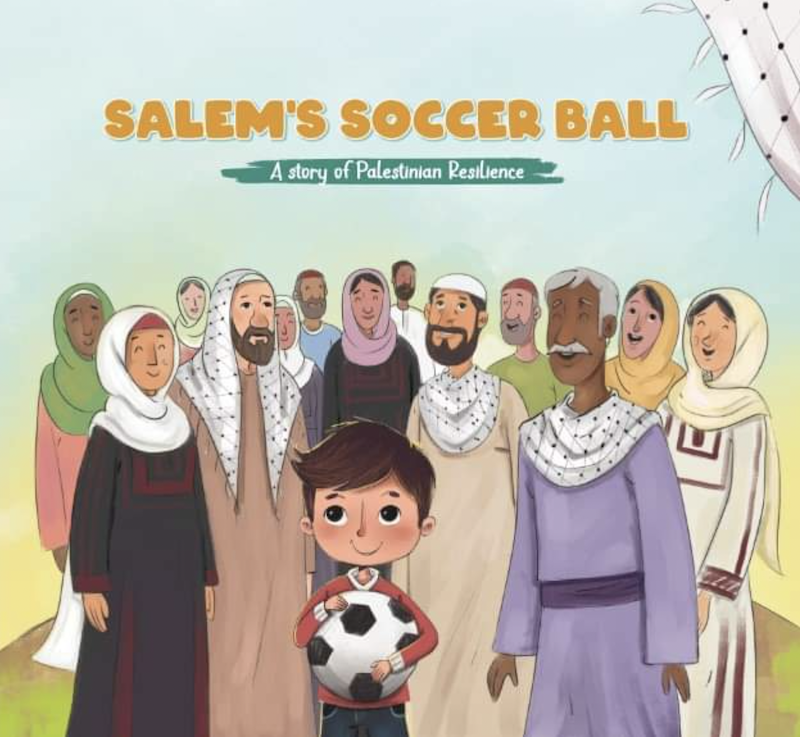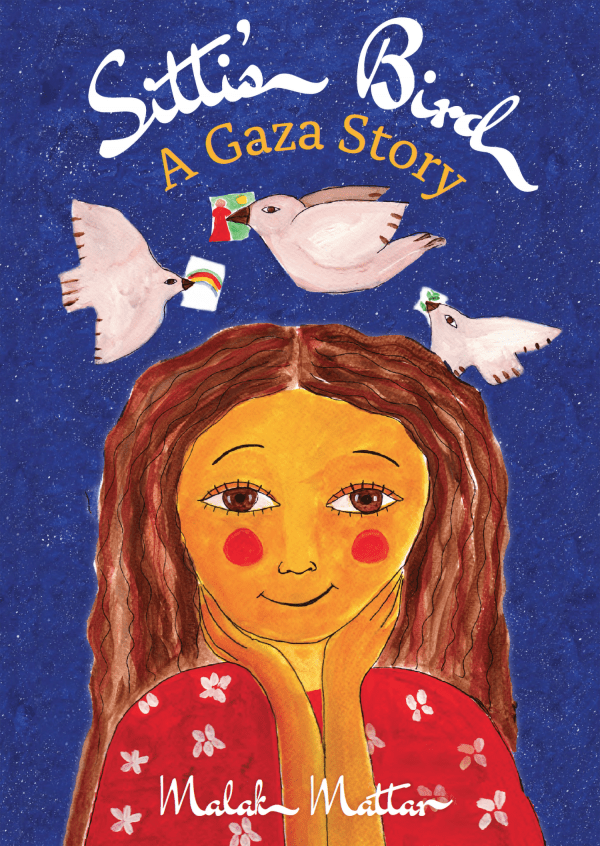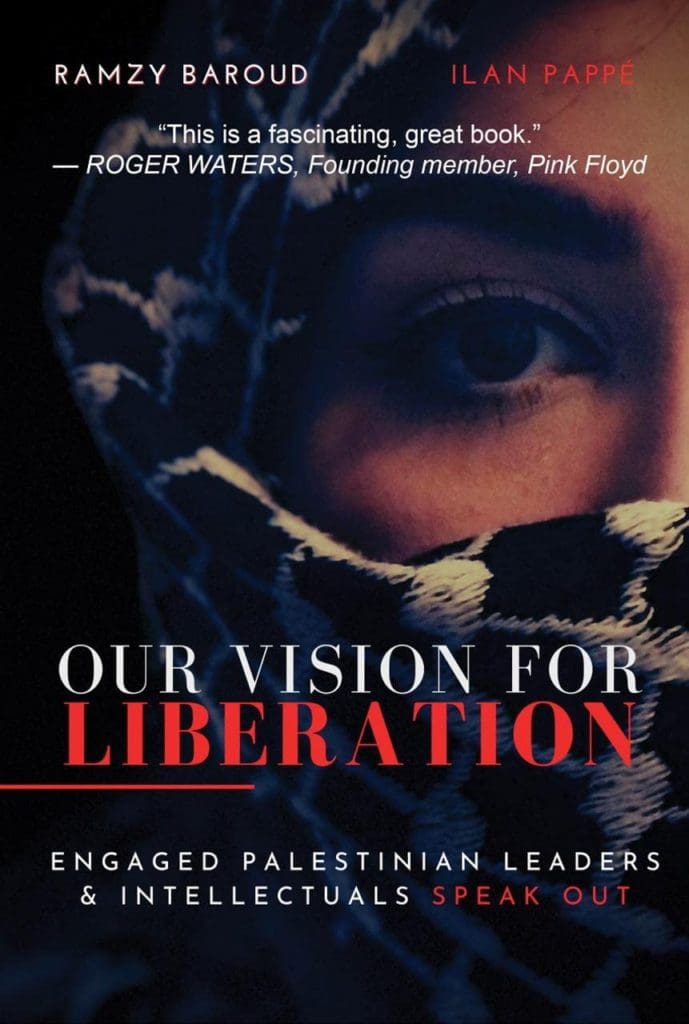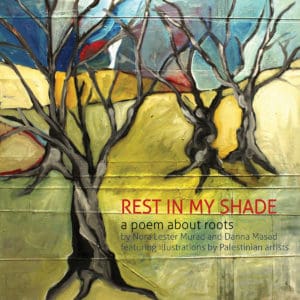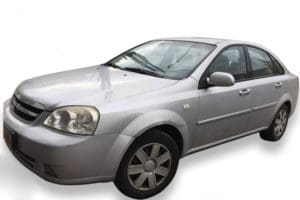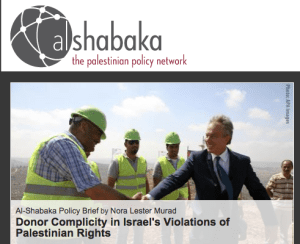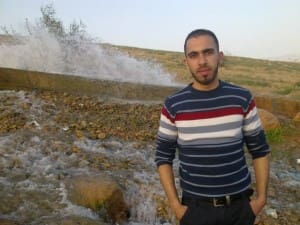This guest post exploring censorship of Palestinian children’s books was first published on Betsy Bird’s blog on School Library Journal.
I started researching censorship of Palestinian children’s books out of concern that my forthcoming young adult novel, Ida in the Middle, could be attacked or banned because the protagonist is a Palestinian-American. Ida is an 8th grader who faces ridicule and bullying at school and finds her strength by connecting with the struggle for self-determination happening in Palestine. Ida’s experiences in her Massachusetts school are loosely based on my youngest daughter’s junior year about which she says, “I didn’t feel like they kicked me out because they had never included me in the first place.” I later spoke with many Palestinian kids with shocking stories of racism, exclusion and invisibility in US schools all of whom thought they were the only one – because no one talks about anti-Palestinian racism.
Palestinians aren’t on the radar of most advocates for marginalized books
What I’m finding in my research about censorship of Palestinians is concerning. Although advocates of intellectual freedom, freedom to teach and the right to learn stand up (appropriately so!) for books about Black, brown and queer communities, the intense, multilayered censorship of Palestinians goes virtually unchallenged – and, in fact, unnoticed. Simply put, Palestinians and their literature are invisible to organizations like the American Library Association, National Coalition Against Censorship, and the National Council of Teachers of English, among others. A good example of this is PEN America’s oft-cited report, America’s Censored Classrooms, which doesn’t even mention Palestinians, although there is a barrage of legislation targeting them, and overwhelming documentation of censorship of Palestinians.
For example, earlier this month, Independent Jewish Voices (IJV) released a detailed, 97-page study of harassment, intimidation and repression against Palestinians in education that includes interference in hiring, classroom surveillance, restrictions on campus groups, demands for the censure or dismissal of pro-Palestinian faculty and students, and obstruction of pro-Palestinian events. They found that the constant and increasing harassment creates a “chilly” environment which threatens academic freedom, muzzles scholarly production, obstructs academic careers, encourages mendacious and malicious discourse, and stifles legitimate protest. More than that, they paint a picture of life for many Palestinian teachers and students that is painful and unfair.
The IJV report focuses on Canadian higher education. Here at home, Palestine Legal, a Chicago-based nonprofit co-published a study with the Center for Constitutional Rights in 2015 called, “The Palestine Exception to Free Speech” showing the same tactics are used in the United States. In nearly 100 pages and with accompanying videos, they explore a range of silencing tactics that are pervasive across US higher education institutions, including monitoring and surveillance, falsely equating criticism of Israel with antisemitism, unfounded accusations of support for terrorism, official denunciations, bureaucratic barriers, administrative sanctions, cancellations and alterations of academic and cultural events, threats to academic freedom, lawsuits and legal threats, and more. In the US, as in Canada, simply being Palestinian seems a provocation, which is hard enough for adults, but imagine being a Palestinian student facing this type of racism in school?
Information about attacks on Palestinians in education is anecdotal but abundant
Although no one seems to be systematically tracking the impact of censorship of Palestinians in K-12 education in the US, there is abundant evidence of harassment aiming to censor Palestinian and pro-Palestinian voices. For example, the Liberated Ethnic Studies Model Curriculum Consortium (LESMCC) has been slapped with a lawsuit because of their inclusion of Palestinians in the curriculum, and teachers not limited to the LESMCC teachers are experiencing administrative harassment in the form of tens if not hundreds of public records requests, not to mention threats to individuals and institutions.
In a separate incident, Palestinian-American teacher, Natalie Abulhawa, was fired from a private, all-girls school called Agnes Irwin for social media posts that were nearly a decade old and were found on a known Islamophobic site, according to the Council on American Islamic Relations.
Attacks on Palestinian books also happen. In a well-known case, a NY bookstore was attacked for their support of the picture book P is for Palestine (Bashi Goldbarg, self-published), and a Hannukah reading of the book organized by anti-zionist Jews was attacked by right-wing Israel supporters.
More recently, Kayla Hoskinson, a librarian in Philadelphia was disciplined for an antiracist post that mentioned Rifk Ebeid’s picture book, Baba, What Does My Name Mean? (self-published) and references to Ebeid’s book and the works of Palestinian poet laureate Naomi Shihab Nye were censored.
Another recent library censorship case occurred in San Francisco over ideas about Zionism and racism. San Francisco Public Library canceled an art exhibit and public event when organizers refused to remove text that ACLU lawyers said was protected by the First Amendment. The library’s explanatory statement said: “… the Library retains the right to determine the suitability of any proposed exhibition to be included in the Library’s exhibition program. The Library also reserves the right to reject any part of an exhibition or to change the manner of display.” But if a library has the right to reject any part of an exhibition, they also have the right to include it, despite pressure from politically-motivated interest groups.
Librarian Kayla Hoskinson talks about the chilling effect of this kind of censorship.
“Attacks against librarians and teachers for including Palestine in their curriculum are definitely noticed by our colleagues. Some are unafraid to move forward with me to plan and host programs about Palestine. More colleagues, though, see what happened to me and don’t want the trouble. Even if they agree, they know they will not be supported against attacks. ALA really needs to re-develop policies and guidelines about neutrality in the field.”
Very few children’s books about Palestine are being published
But when it comes to traditional bans–the listing of books that are forbidden in schools and libraries–attacks on Palestinian books seem more opportunistic and ad hoc rather than systematic and ambitious like the ones directed against Black, brown and queer books.
This may be because there are so few books about Palestine. For example, the Diverse Book Finder studied over 2000 picture books published since 2002 and found only 3% fell into the broad Middle Eastern category. How few of those are Palestinian?
In a study I’m currently doing with several Palestinian teachers to produce a framework that educators and librarians can use to evaluate books involving Palestine, we found that a full 40% of our sample of books about Palestine authored by Palestinians were self published, indicating that censorship is happening before publication. This means that fantastic children’s books like Tala Fahmawi’s self-published Salim’s Soccer Ball get only limited visibility and lack the library-attractive credibility that comes along with being traditionally published.
Sadly, the problem is not merely one of oversight or negligence. In a webinar called “Translating Palestine,” translator Sawad Hussain said she had been told outright by some editors that they are afraid to work with Palestinian authors lest they be seen as too political or publishing “too many Palestinian authors.” Translator Marcia Lynx Qualey said that even books accepted for publication are often “bulletproofed,” which she described as scrubbed of content Palestine’s opponents would claim is offensive.
Palestine is a taboo topic due to fear and politicization
My publisher, Interlink Books, founded by Palestinian-American Michel Moushabeck has provided a much-needed pathway for Palestinian books and books about Palestine to reach US readers, yet he too has faced challenges. Most recently, Malak Mattar’s Sitti’s Bird: A Gaza Story (2022) has been unable to get a single mention or review in trade publications and mainstream media, unlike all the other picture books he’s published. Moushabeck says, “It’s because it’s a Palestinian story of trauma. We knew this would happen because the same thing happens to all our titles written by Palestinians. Some editors do not assign books by Palestinians for review–especially ones they deem controversial or think can get them into trouble.”
The consequences of the censorship of Palestinian children’s books goes far beyond the impact on Palestinian authors and Palestinian children. As the ALA’s Unite Against Book Bans campaign says, without books:
“Students cannot access critical information to help them understand themselves and the world around them. Parents lose the opportunity to engage in teachable moments with their kids. And communities lose the opportunity to learn and build mutual understanding.”
American Library Association
Applying principles of intellectual freedom, freedom to teach and the right to learn to Palestinian topics
For the ALA and other librarians and educators who advocate for intellectual freedom, freedom to teach and the right to learn, Palestine should be with others at the frontline of the struggle. Some even argue that Palestine is the litmus test of antiracists’ commitment to rights for all. For this reason, I hope organizations like the American Library Association, the National Coalition Against Censorship, PEN America, the NCTE and others who librarians and educators look to for leadership will become proactive in rejecting the violent silencing and criminalization of Palestinian voices. I hope they will step forward to demand intellectual freedom, the freedom to teach and the right to learn not only for some, but for those who most need to be uplifted in order to be heard, including Palestinians.
